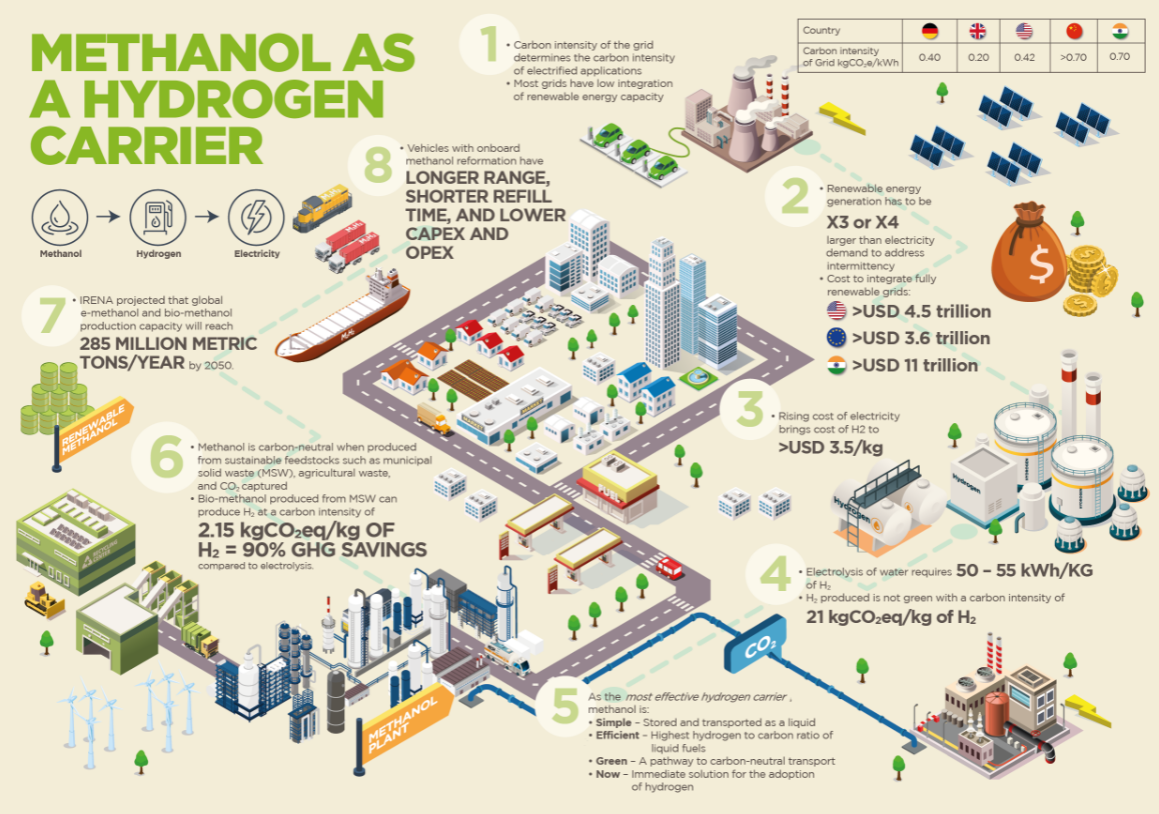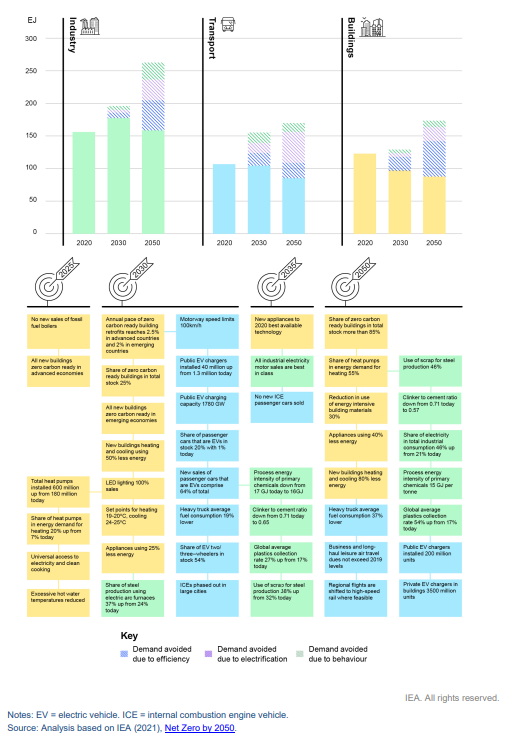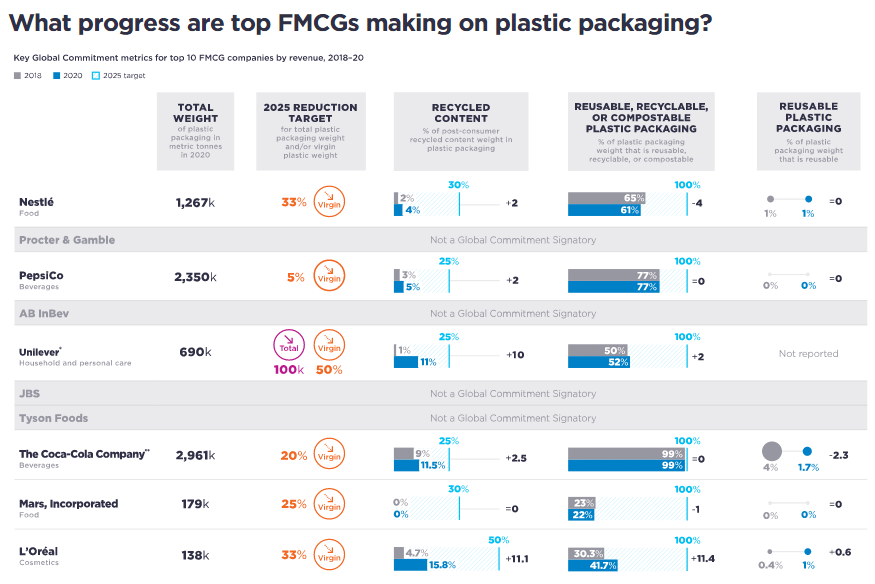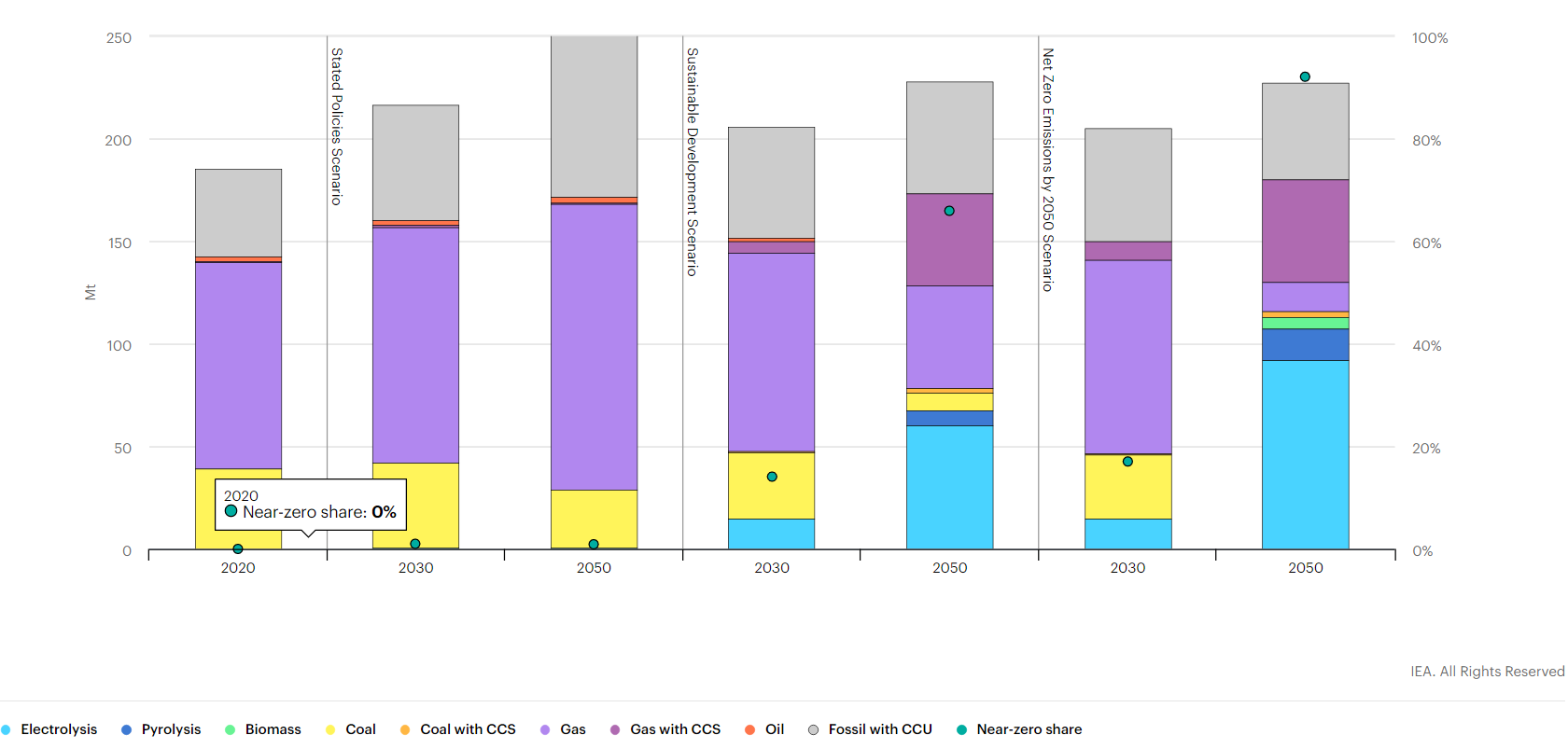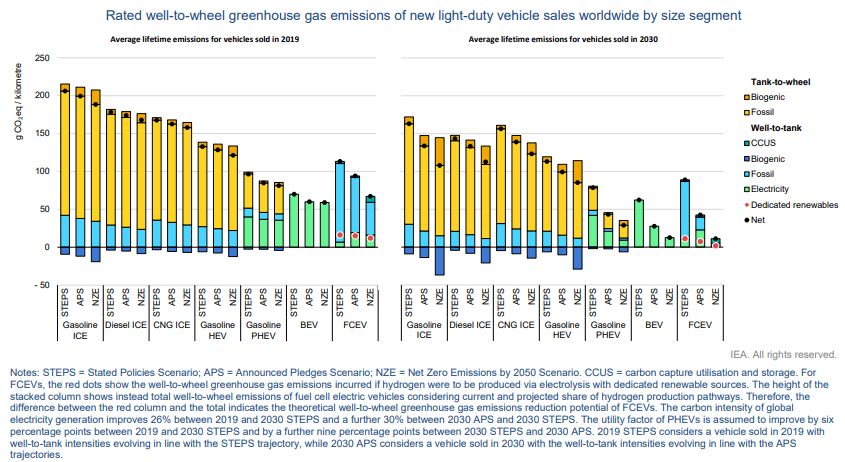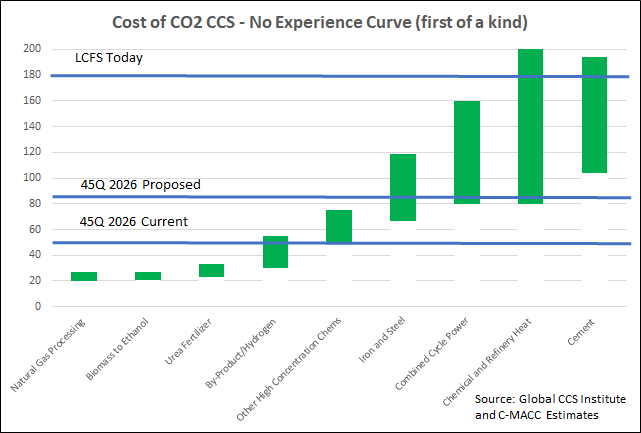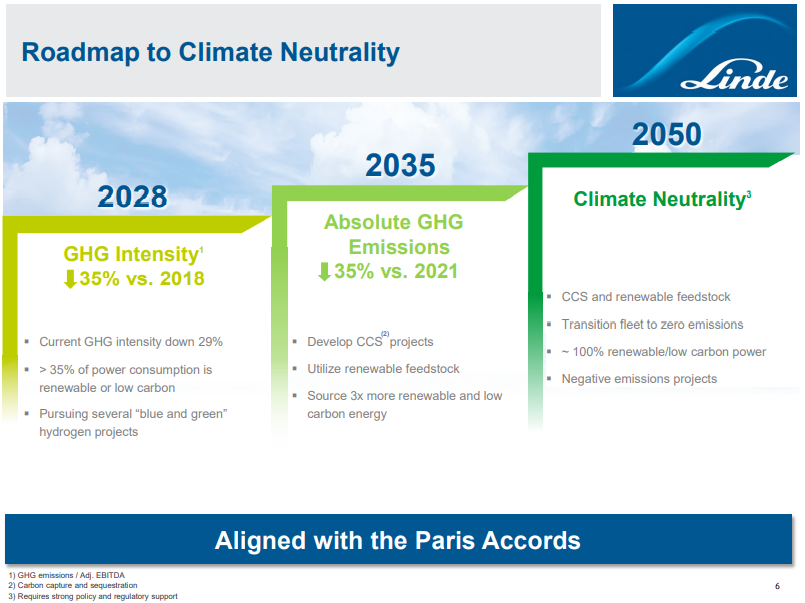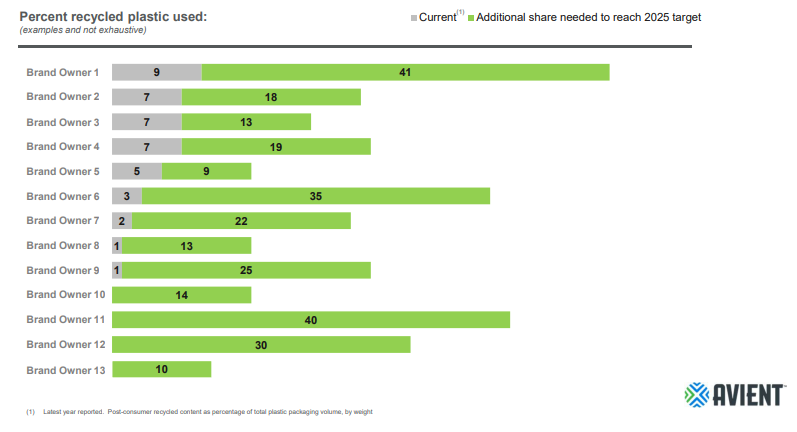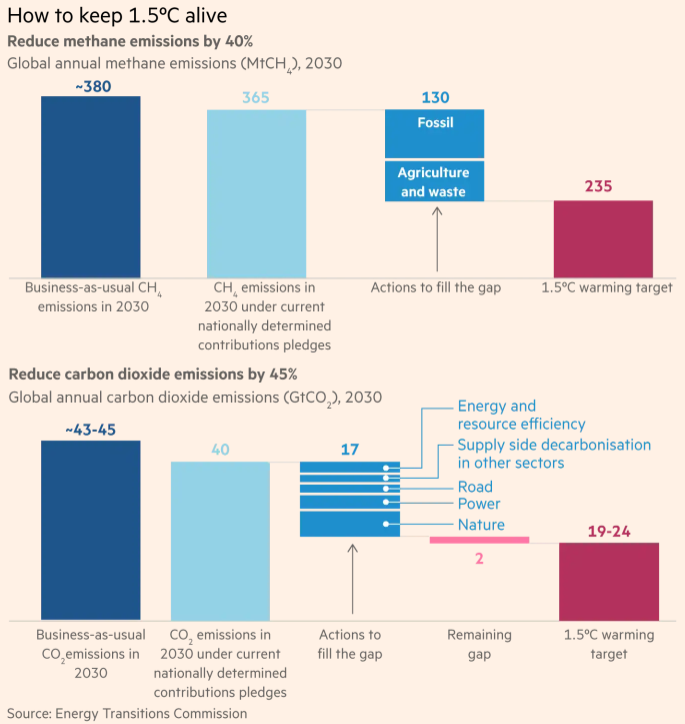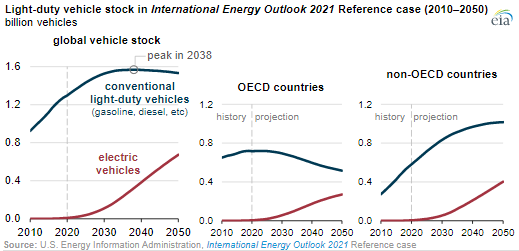We are going to focus our Sunday Thematic this week (will be found here) on a couple of related topics: alternative technologies that only make sense when prices are high, and whether this has changed with ESG and climate pressure, and ESG solution fixation – “methanol is the only solution” – see infographic below – or it’s hydrogen or ammonia or batteries. Sticking with the theme that seems to have hit a chord with COP26 attendees and something that we discussed in a report around carbon capture several months ago – we cannot let a foolhardy quest for “perfect” get in the way of more economic “good enough” solutions. The emission issues are generally site and process specific and different solutions will be more practical and affordable for different processes and in different geographies – there is no “one size fits all” solution.
There Is No Single Solution For Carbon Abatement
Nov 19, 2021 12:23:34 PM / by Graham Copley posted in ESG, Hydrogen, Carbon Capture, Climate Change, Sustainability, Methanol, CO2, Emissions, Ammonia, carbon abatement, batteries, climate, COP26, carbon credits, carbon pricing
The IEA Energy Efficiency Analysis Is Bearish On Recycling
Nov 17, 2021 2:30:42 PM / by Graham Copley posted in ESG, Recycling, Sustainability, Plastics, Energy, Net-Zero, IEA, climate, packagers
The IEA has published another report looking at energy intensity progress – noting that the rate of improvement in energy use is likely not fast enough to do its part in achieving net-zero needs. It is a comprehensive report (linked here) and we have chosen a couple of charts as you can see in today's daily report. The more interesting conclusion within the analysis may be that the IEA expects plastic collection for recycling to rise from 17% to only 27% by 2035. While this is a global average and will differ by country and likely by material, the overall rate looks low (but probably reasonable) and too low to allow packagers to meet recycle content goals, many of which are either 2025 or 2030 targets. We discuss some of the evolving packaging challenges in our ESG and Climate report today.
Recycle Availability Still Expected To Be A Headache For Packagers
Nov 16, 2021 1:02:05 PM / by Graham Copley posted in ESG, Recycling, Polymers, Sustainability, PET, Coca-Cola, polymer producers, renewable polymers, chemical recycling, low carbon, PepsiCo, Unilever, zero carbon, recycled polymers, FMCG, recycling goals
The chart below on recycling progress by the major FMCG companies is timely as it bumps into plenty of “national recycling day” headlines which include as many stories around recycling polymers into new applications as stories about like for like recycling. The more polymer that moves through collection and sorting and into roadbeds or composite particleboard replacement, etc., the less there is available for the FMCG companies to meet recycling goals. We see this as a major opportunity for the renewable polymer makers, but it is unlikely that there will be enough renewable-based polymers available to close the 2025 gap for most of the companies listed below. What is likely, in our view, is that the packagers will embrace chemical recycling as a way to increase their recycled content and will strike very specific deals with those able to show a chain of custody from collection through new polymer production.
If Ammonia Can Offset Coal In Power Plants, Demand Estimates May Be Too Low
Nov 9, 2021 1:45:47 PM / by Graham Copley posted in ESG, Sustainability, Coal, CCS, Ammonia, Power Plants, demand
One question we would have concerning the IEA ammonia projections in the charts below is whether the absolute demand assumption for 2050 is too low. If Japan has success co-firing its coal-based facilities with ammonia over the next 6-7 years, we could see a step-change in ammonia demand. The chart likely reflects expectations in Japan, but we would expect other coal-heavy economies to follow Japan's lead. If this were the case, we would expect the share of hydrocarbon-based ammonia to rise with accompanying CCS.
Hey Mr. President/Prime Minister, Will You Buy My Car?
Nov 4, 2021 1:58:06 PM / by Graham Copley posted in ESG, Sustainability, CCS, CO2, Emissions, Electric Vehicles, Net-Zero, IEA, climate, EVs, ICE, carbon footprints
We highlight more from the IEA on the importance of EVs versus other vehicles to bring down “well to wheel” carbon footprints and the second (not unexpected) “kick in the pants” chart that shows the World woefully short in terms of its projected EV adoption rate. There are – probably expensive – hurdles to reaching the IEA net-zero goals with respect to EVs. The first is going to be the need to pay or tax consumers enough for them to give up a perfectly good ICE vehicle long before the end of its natural life.
The US Remains Divided On How To Price Carbon
Nov 3, 2021 1:34:59 PM / by Graham Copley posted in ESG, Carbon Capture, Sustainability, LNG, CCS, CO2, Energy, Emissions, Carbon Price, carbon credit, renewables, LCFS credit, COP26
We want to focus today on the headlines around the possible increase in the 45Q CCS credit in the US and discuss the false logic of those that are objecting to it. There is no scenario where the US can move to a lower emissions power and transport profile while avoiding runaway inflation and social disorder without the continued use of fossil fuel-based power and transportation fuels for decades. The reliance on these fuels should and will decline over the years, but it is unreasonable to expect a transition that causes it to stop overnight. In the meantime, CCS is a mechanism that would allow fossil fuels to play a part with a much lower emissions footprint, and given that the CO2 impact on global warming is cumulative, if we can capture and store several billion tons of CO2 underground over that transition period it should be a good thing. Members of the Sierra Club and others would do well to look at the energy inflation problems in Europe and the move this week to put natural gas and nuclear back in the energy transition mix (too late in our view) because the move to renewables cannot keep pace with demand, which will grow faster as more EVs hit the road. The proposed 45Q credit is shown in the chart below vs. the current credit, the LCFS credit, and estimates of CCS costs.
Net-Zero Goals Need Stronger Action Plans
Oct 29, 2021 1:56:53 PM / by Graham Copley posted in ESG, Carbon Capture, Sustainability, CCS, CO2, Energy, Air Products, Industrial Gas, LyondellBasell, Net-Zero, Dow, carbon footprint, carbon emissions, climate, COP26, materials, low carbon polyethylene, Linde
It is interesting to contrast Linde and LyondellBasell with Air Products and Dow. Air Products and Dow have transitioned away from the more generic messaging around broad objectives, and while they still have them, have started talking about concrete plans and spending aimed at lowering carbon emissions. Dow has a project on the books that will lower the emissions of existing capacity while Air Products is talking about greenfield low carbon investments at this point. Many of the commentators and climate activists are calling for concrete plans as opposed to broad objectives and we suspect that most of the narrative will move that way across energy and materials.
Challenging Recycle Targets Suggest High Prices & Opportunities For Renewables
Oct 28, 2021 1:57:50 PM / by Graham Copley posted in ESG, Recycling, Sustainability, PET, polymer producers, renewable polymers, renewables, climate, recycled PET, virgin material, bio-polymers, waste, recycled material
The Avient chart around where brand owners sit with recycled content versus 2025 goals is quite scary. There are not enough initiatives collectively to address the needs, as the demand extends beyond the 13 brand owners listed. In our ESG and climate report yesterday we talked about the challenges with recycled PET and the complicating factor around recycled material heading into different applications, and consequently not being available to bottlers. We also have the issue of PET bottle pre-form capacity being overweight in Asia versus PET bottle demand and waste – setting up an imbalance between where the waste is and where the recycled material is needed. The gaps in the Avient chart and the slow and challenging recycling progress lead to a couple of conclusions. The first is that recycled material is likely going to rise in value versus virgin material – simply because of competition and the PR, IR, Social cost of not meeting targets for many brand owners. The second conclusion is that the renewably sourced polymer producers have a huge potential opportunity to step in and fill the gap. The challenge will be the ability to have enough capacity up and running to meet demand in 2025.
COP26: Some Tough Decisions For A Divided Group
Oct 27, 2021 1:44:48 PM / by Graham Copley posted in ESG, Sustainability, Methane, CO2, Net-Zero, methane emissions, COP26, Climate Goals, CO2 emissions, carbon pricing
Our ESG and Climate Piece today focuses heavily on COP26, which begins this weekend, and has been the subject of many of this week's stories, as attending countries make their concerns and preferences known and as companies and lobbying groups try to be heard. The linked FT article talks about the minimum needs from COP26. We highlight this because we have been talking about the same things for months – the significant gap between what is pledged for 2030 and what is needed, and the need to attack emissions of methane and CO2 aggressively. The methane issue can likely best be achieved through legislation – especially as some of the leaks around the world may not belong to anyone, who could benefit from an incentive or be penalized for the leak. The CO2 emission issue will always be bet addressed through a pricing mechanism on carbon.
Gevo: Ticking All The Boxes To Be A Sustainable Fuel Provider
Oct 26, 2021 12:48:37 PM / by Graham Copley posted in ESG, Sustainability, CO2, Carbon, Gevo, Chevron, gasoline, sustainable aviation fuel, renewable fuels, Sustainable Fuel, Axens, ADM
Gevo is racking up the agreements to produce sustainable fuels, announcing deals with Chevron, Axens, and now ADM since September. Our view on the need for sustainable aviation fuel is that everyone building will likely be capital constrained relative to the potential demand – this is also true for sustainable diesel and gasoline, which is relevant given that the EIA sees the conventional light vehicle stock peaking globally as late as 2038 (this is not inconsistent with other estimates we have seen) see chart below.


